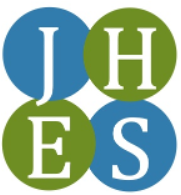ABSTRACT
Food neophobia (FN) is the reluctance to eat novel foods. It peaks around the toddler and preschool years, a sensitive time for developing dietary habits. If this eating behavior persists, children are susceptible to acquiring lifelong unhealthy dietary habits, ultimately affecting their development. Hence, this cross-sectional study involved 88 parents or caregivers of children ages 2 to 5 to describe FN relative to nutritional status (NS) and diet quality (DQ) and identify factors affecting its development. Data were collected using a computer-assisted personal interviewing (CAPI) online survey. Weight-for-height and height-for-age measurements were used to assess NS. While dietary diversity score (DDS) and Menu Eval Plus for DQ. The Child Food Neophobia Scale was adopted to measure FN. No significant associations were noted regarding NS and DQ. However, food-neophobic children had fewer intakes of legumes (p-value=0.041) and non-vitamin A-rich vegetables (p-value=0.048) and excessive intakes of phosphorus (p-value=0.002), vitamin A (p-value=0.027), and riboflavin (p-value=0.037). Snacks and discretionary foods are also frequently consumed as they are readily available and accessible. This behavior may probably be due to the innate preference of children for sweet and salty over bitter and sour flavors. Results warrant further research to develop interventions to address FN in children.
ABOUT THIS ARTICLE
Authors and Affiliations
Brian Floyd Andrewmer B. Albitos* and Aimee Sheree A. Barrion
Institute of Human Nutrition and Food, College of Human Ecology, University of the Philippines Los Baños, College, Los Baños, Laguna, 4031, Philippines
*correspondence: bbalbitos@up.edu.ph
| Received | Accepted | Published |
| 16 February 2023 | 17 October 2023 | 24 October 2023 |
Cite this article
Albitos, B. F. A. B. & Barrion, A. S. A. (2023). Food Neophobia and its Association with Nutritional Status and Diet Quality in Children Ages 2 to 5 in Barangay Gulang-gulang, Lucena City, Philippines. Journal of Human Ecology and Sustainability, 1(1), 5. https://doi.org/10.56237/jhes22010
Rights and permissions
This is an open-access article distributed under the terms and conditions of the Creative Commons Attribution (CC BY) license (https://creativecommons.org/licenses/by-nc-nd/4.0/), which permits unrestricted use, distribution, and reproduction in any medium, provided you give appropriate credit to the original author(s) and the source, provide a link to the Creative Commons license, and indicate if changes were made.
